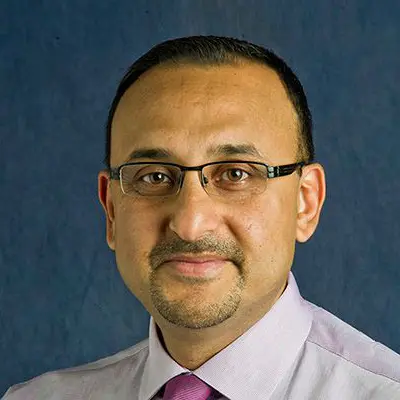Prof. Dr. Paul Monga

Vice-Chair of Experimental Pathology – Department of Pathology – University of Pittsburgh
sab Member
Dr. Paul Monga is an Academic Physician with an interest in furthering our understanding of many aspects of liver health and disease. After completing his medical training and internship in India, he did his post-doctoral training in Gastroenterology, Hepatology & Molecular Biology at the Department of Veterans Affairs Medical Center in Washington D.C., learning about liver development and signal transduction. He joined the University of Pittsburgh in the Department of Pathology in 1999 for his second postdoctoral fellowship where he trained in the areas of liver regeneration and liver tumors. In 2001 he became faculty head and was appointed on tenure stream in 2003. He currently is the UPMC Endowed Chair for Experimental Pathology, and Professor of Pathology and Medicine. He serves as the Vice Chair and Chief of the Division of Experimental Pathology. He is the founding director of the Pittsburgh Liver Research Center (PLRC), an NIDDK-funded Silvio O Conte Digestive Diseases Research Core Centers. whose members study regenerative medicine, chronic liver injury and tumorigenesis. He is also the program director of a NIH-funded T32 predoctoral training grants on Regenerative Medicine and serves as the Assistant Dean and co-Director for the Medical Scientist Training Program (MSTP).
For the last 20 years, Dr. Monga’s lab has been focused on elucidating the cellular and molecular underpinnings of hepatic pathophysiology especially of liver development, repair, and tumorigenesis focusing on innovations in regenerative therapies and cellular reprogramming.
Another major focus of his lab is to understand the basis of liver tumors especially hepatoblastoma (HB), hepatocellular cancer (HCC) and cholangiocarcinoma (CCA). Using molecular and bioinformatic information from clinical tumors, his group has generated innovative animal models to address biology and therapies with the goals of enabling precision medicine in liver tumor space. Studies from his group have yielded many important biological, diagnostic and therapeutic insights into various categories of liver tumors.
